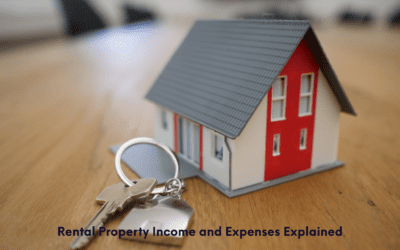Tax Breaks for Your Vacation Home
Summer rentals have been stronger than they have been in years, and purchases of vacation homes are on the rise after years of a housing slump. It’s understandable to think of vacation homes as only beachfront or lakefront properties, but tax law doesn’t work that way. Vacation homes aren’t limited to waterfront condos or ski chalets; they can include a boat or an RV, as long as the property includes sleeping, cooking, and toilet facilities. Reporting rental income – Rental income usually is includable in gross income, but can be offset by certain expenses related to the vacation home (explained below). However, there’s one exception that can give you tax-free income. You do not have to report the rent you receive for a rental that is no more than 14 days. Thus, if you rent your beachfront property for 10 days, the rent you receive is tax free. Deducting rental expenses – Three costs related to the ownership of a vacation home can be deducted if you itemize deductions. These deductions are allowed without regard to whether you rented the property: Real estate taxes. Any property taxes paid on a vacation home are deductible; there is no limit. Mortgage interest. You can designate a second home to qualify for deductible mortgage interest. The same limits for a primary residence apply to a vacation home ($1 million for acquisition debt originated before 2018, $750,000 for acquisition debt in 2018 and after). Home equity debt is no longer deductible. Caution: If you pay any points to obtain the mortgage, the points are deductible ratably over the term of the loan. They can’t be deducted in the year of the home’s purchase like they can with a main home. Casualty and theft losses. If your insurance doesn’t cover a loss, you may take a tax deduction. Each occurrence is reduced by $100, and your total loss deduction is limited to the excess of 10% of your adjusted gross income. The amount of time you use your home and the days it’s rented to others at a fair rent can affect the extent of other deductions: If the rental is no more than 14 days – you can’t deduct any maintenance or other costs beyond those allowed for real estate taxes, mortgage interest, and casualty or theft losses. If the rental is more than 14 days and your personal use is more than 14 days or 10% of the rental days – you can deduct some additional expenses such as maintenance, insurance, and depreciation, but only to the extent of rental income. If the rental is more than 14 days but personal use is not more than 14 days or 10% of the rental days – you can deduct all of your expenses up to the amount of rental income, subject to the limits of passive loss rules.



